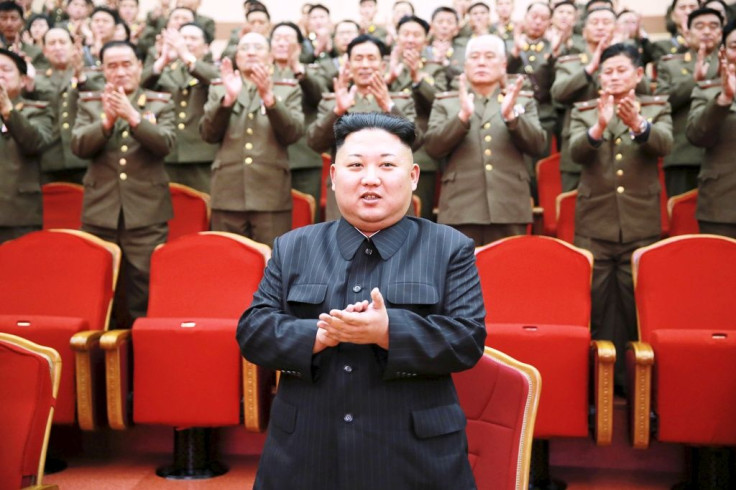North Korea Calls US ICBM Interceptor Test Military Provocation

North Korea on Saturday reacted to the United States’ successful missile interceptor test over the Pacific Ocean on May 30. The reclusive state said Washington will be unable to intercept its nuclear weapons and called the test a military provocation.
"Such a risky act is a sign that their (U.S.) preparations for unleashing a nuclear war against the DPRK [Democratic People’s Republic of Korea] have reached the final phase," a spokesman for North Korea's Strategic Force told the country’s official Korea Central News Agency (KCNA).
Read: North Korea Sourced IRBM Engine Likely From Ukraine Or Russia, Report Says
"Their foolhardy moves go to clearly prove that the DPRK's step for bolstering the nuclear force for self-defense is entirely just," the spokesman told the news agency.
On Tuesday, the Pentagon shot down a mock intercontinental ballistic missile (ICBM) over the Pacific Ocean using the long-range interceptor missile, launched from Vandenberg Air Force Base in California. After the successful test, Pentagon said the intercept was a "direct hit" and an "obliteration" of the target. The test was widely viewed as a test of Washington’s ability to tackle growing the nuclear power of North Korea, which has threatened to launch its ICBM that can reach the mainland U.S.
"The intercept of a complex, threat-representative ICBM target is an incredible accomplishment ... and a critical milestone for this program," Vice Adm. Jim Syring, the director of the Missile Defense Agency, said after the test. "This system is vitally important to the defense of our homeland, and this test demonstrates that we have a capable, credible deterrent against a very real threat."
However, North Korea called the test a bluff.
"They (U.S.) are now bluffing, bragging about the 'success' in the test and the efficiency of the missile interception system. But the DPRK considers it just a foolish act of those driven to despair," the North's spokesman told KCNA. "They are sadly mistaken if they think such missile interception system can prevent the shower of nuclear strike by the Strategic Force of the KPA (Korean People's Army). The last-ditch gambling of the Trump administration for a nuclear war will only bring earlier the day when the U.S. mainland will turn into ashes."
The Kim Jong Un-led nation has repeatedly conducted missile launches, despite strict sanctions and warnings from the United Nations and other countries around the world. This has fueled tensions in the Korean Peninsula.
On May 14, Pyongyang test-fired the Hwasong 12 missile, a major step in its pursuit of the ICBM. The isolated country said the missile was fired at the highest angle and it reached the maximum altitude of more than 1,310 miles before landing in the East Sea, 500 miles away.
The mounting tensions with its neighbor led South Korea to ask the U.S. for installation of the Terminal High Altitude Area Defense missile system on the peninsula. THAAD was deployed in South Korea in April. Washington and Seoul also conducted joint military drills, much to the dislike of the North.
© Copyright IBTimes 2024. All rights reserved.






















